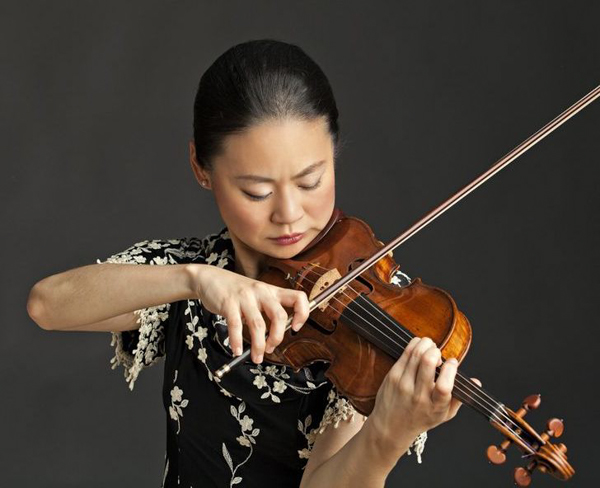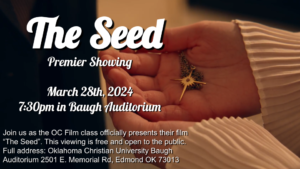Online Photo
A childhood hobby turned 30-year violin career will be commemorated in Edmond, as Armstrong Auditorium presents Midori Goto, accompanied by pianist Ozgur Aydin, on April 24.
“She is just a superstar in the classical world,” Thompson said. “She started playing as a child and has been a famous one because she was so proficient at such a young age.”
This event is peculiar in the sense that Midori usually performs with the Chamber Music Concerto. Her April performance is different because she will be the sole performing violinist, accompanied only by a pianist.
“I think [Midori’s performance] has to do with the Armstrong Auditorium series,” Kathy Thompson, chair and professor of music, said. “They are bringing in some very serious classical musicians every year to this area and so it would be a matter of her agent probably. … They’ve had some really stellar people [in the classical world].”
Born in Osaka, Japan, Midori Goto – known professionally as Midori – was instructed in violin by her mother from the age of three.
The musician earned her bachelor’s and master’s degrees in psychology from New York University and currently serves as the Jascha Heifetz Chair at the Thornton School of Music at the University of Southern California.
Midori has acquired multiple awards throughout the course of her career. She received the Avery Fisher Prize in 2001 and was named an official U.N. Messenger of Peace in 2007 by United Nations Secretary-General Ban Ki-Moon.
There are benefits to performing without the full orchestra, according to sophomore Emily Kennedy.
“There’s a whole lot less people that you have to coordinate with, so that allows for a lot more musicality,” Kennedy said. “Each separate person doing the exact same thing at the exact same time takes ridiculous concentration, and so if you’re trying to add interest to a piece by speeding up or slowing down, you would not be able to stay with an entire orchestra. At the same time, there’s a whole lot more power behind a solo performance than if you have a whole entire orchestra backing you up.”
Freshman Blake Bender pointed out that while the impact may be more apparent, so would any mistakes.
“A solo relies on you, whereas in a group … each person can divide the weight,” Bender said. “You have the violins in the high point and everyone else is in the background, but as a soloist you have to do that all the time. It’s a lot more stress I guess, unless you’re content with your skills. … It’s a good test on your skills and a good way to get you out there and show other people how you perform. The negative side would be that if you do mess up, everyone would notice.”
Kennedy sees the presentation of such talent as an opportunity for aspiring musicians to learn through imitation.
“It would be really nice to hear someone with so much experience and compare myself to them,” Kennedy said. “Like if I do want to become a famous violinist someday, I could see the differences in what I need to change to do with technique and the way she holds herself on stage. There are all sorts of things as a musician that you look for that creates a good performance and those are the things I would be looking at.”
Regardless of the art form, performance in general has the capacity to enrich the lives of those who watch, according to Thompson.
“I just think, whether it is a violinist or a famous clarinetist or a pianist or an artist or a dancer, to see people who are really, really great in their performing, it is just enriching,” Thompson said. “You see what another person has been able to do with their life. Of course the music in itself is thrilling; you see not only what the person was able to do, but [also] what the composer had been able to do before that. There is just a connection with music and with humanity that I think is astounding. … It enriches us.”
Midori’s performance will take place at Armstrong Auditorium on April 24. Some scheduled pieces include: “Duo Sonata in A Major, D. 574” by Schubert, “Partita” by Lutoslawski, “Sonata in C Minor, BWV. 1017” by Bach and “Sonata in G Major, Op. 96” by Beethoven.
“A lot of solo performers will try to have a program that shows several different styles – which is what she is doing there with the Bach and then the Beethoven, being a classical composer and Shubert being a romantic composer, and then the other one is a contemporary composer,” Thompson said.














Be First to Comment